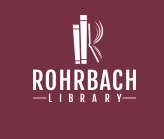Publication Date
Fall 12-3-2018
Abstract
Travel has been regarded as not only a vacation but also a learning experience and for many Americans a process of familiarizing oneself with the history of their country. Technological advancements introduced means of mobility that allowed people to indulge in America’s culture and history. The 20th Century was a turbulent era accompanied by industrialization and an increase in nationalism. Tourist marketing had strategically mapped routes to showcase the highest points in American culture while ignoring some controversial narratives. Once travel became mediated by tourism in the 20th century it lost some elements of freedom and adventure, instead becoming the product of a business plan built off American pride. Turbulent political conditions during the time period were ignored and inequality was reproduced through the consumption of a nationalist agenda embedded within tourist culture. The stories of John Williams, Stephen Merritt, an Emily post are indicative of the consciousness of early travelers. It takes awareness to enjoy travels as not just a tourist, but as a human being. This knowledge is relevant in the present day in order to begin a reflection on just how conscious we are of the reproduction of cultural values within our consumption and activities.
Creative Commons License

This work is licensed under a Creative Commons Attribution 4.0 International License.
Recommended Citation
Knox, Derick J., "Tourism and Nationalism in America" (2018). English Department: Traveling American Modernism (ENG 366, Fall 2018). 19.
https://research.library.kutztown.edu/englisheng366/19
Included in
Fiction Commons, Inequality and Stratification Commons, Modern Literature Commons, Nonfiction Commons, Poetry Commons


